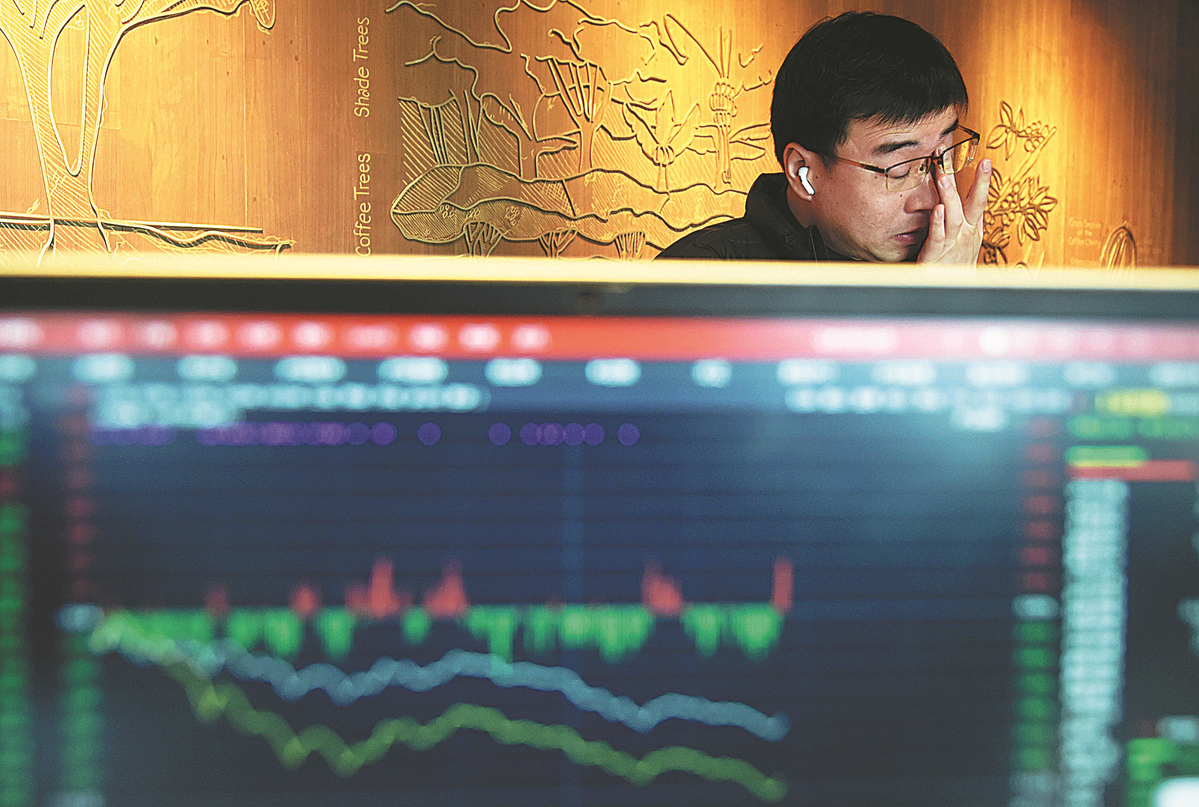Stocks down; bargains may lift sentiment
 0 Comment(s)
0 Comment(s) Print
Print E-mail China Daily, January 26, 2022
E-mail China Daily, January 26, 2022

Market uncertainties and a downbeat sentiment caused by poor 2021 corporate results affected the A-share market on Tuesday, with the benchmark Shanghai Composite Index plumbing the 3500 level to close 2.5 percent lower at a two-month low of 3433.06 points, but market mavens said bargain-hunters may zero in on quality stocks.
The Shenzhen Component Index slumped by 2.83 percent to close at 13683.89 points, while the technology-focused ChiNext in Shenzhen, Guangdong province, plunged 2.67 percent to 2974.96 points.
Communication services, culture and media, gaming and professional services reported the biggest losses.
So far this year, the SCI has shed more than 3 percent while the ChiNext dropped more than 8 percent.
Losses reported in the 2021 interim financial results of A-share companies have partly caused the stock slump.
For instance, Beijing Shunxin Agriculture Co Ltd saw its price fall by the daily limit of 10 percent on Tuesday, as it reported on Monday an estimated profit contraction of 80.95 percent for 2021.
Similarly, ChiNext-listed Qitian Technology Group saw its shares slip 12 percent, as it reported a net loss of up to 490 million yuan ($77 million) last year.
Analysts from China Merchants Securities explained that China's economic growth rate and inflation rate are both declining at present. The stock market usually is weaker during such circumstances while the bond market will be relatively stronger.
The relatively pessimistic market sentiment is the major reason for the recent adjustments, said Hu Bo, a fund manager from Shenzhen Rongzhi Investment Consultant Co.
Conservative investors have lowered their positions to cut losses, which has resulted in a large amount of redemptions in mutual fund products and the retreat in major indexes. The situation may not improve before the Lunar New Year, which starts on Feb 1 this year, he said.
The A-share market appears to be moving within range. While there are no evident signs of bears on the rampage, bulls are conspicuous by their absence as well, said Yang Delong, chief economist at First Seafront Fund.
When the market nears the bottom, smart investors tend to zero in on bargains in quality stocks. But the sectors that reported significant gains last year, like new energy, may fluctuate more severely this year as there is no consensus on their valuation, said Yang.
Analysts from China International Capital Corp Ltd wrote in a note that major economic indicators may improve as more stabilizing policies are expected. Market sentiment will likely brighten.
China has entered a cycle of lowering interest rates, given the recent cuts in the loan prime rate and medium-term lending facility, which signal relaxed market liquidity. Investors can continue to hold existing stocks in their portfolios if they believe they are quality companies, said He Jinlong, general manager of Shenzhen-based Youmeili Investment.
Trends of the last two decades suggest the market gains upward momentum every spring, said analysts from Haitong Securities.
In the past, when stabilizing policies were introduced in the first few months of 2012, 2014,2015 and 2019, value stocks rose, followed by stocks of growth enterprises. A similar story might ensue this year, said Haitong analysts.






Go to Forum >>0 Comment(s)